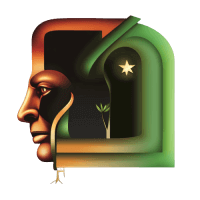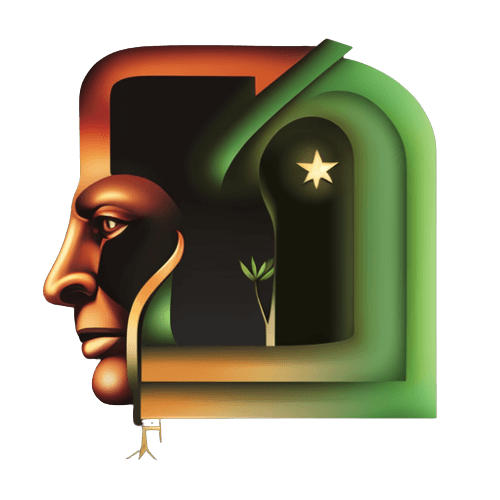Welcome to our blog post where we embark on a fascinating journey into the world of wine and artificial intelligence. In this article, we will explore how AI technology is revolutionizing the process of predicting wine quality. So, grab a glass of your favorite vintage and let’s dive in!
Table of Contents
Unraveling the Complexity of Wine Quality Assessment
Assessing wine quality has traditionally been a subjective and time-consuming process. Expert sommeliers and wine tasters rely on their refined palates and years of experience to evaluate various aspects of a wine, such as aroma, taste, color, and body. However, the human sensory system can be influenced by many factors, including mood, environment, and personal preferences. This subjectivity often leads to variations in quality assessments.
Here’s where AI comes into play. By harnessing the power of machine learning algorithms, AI systems can analyze vast amounts of data and identify patterns that elude human perception. This enables winemakers and enthusiasts to predict wine quality with greater accuracy and consistency.
The Role of AI in Predicting Wine Quality
Data Collection and Analysis
AI algorithms rely on data to make accurate predictions. In the context of wine quality prediction, these algorithms analyze a wide range of data points, including weather conditions during grape cultivation, soil composition, grape maturity, winemaking techniques, and chemical composition. By combining and analyzing this data, AI systems can identify correlations and patterns that impact wine quality.
Predictive Modeling
Once the data has been collected and analyzed, AI algorithms can create predictive models that estimate wine quality based on the identified patterns. These models take into account the multitude of factors that influence wine quality and provide winemakers with valuable insights. By leveraging AI technology, winemakers can make informed decisions during the wine production process to enhance quality and consistency.
Quality Control and Monitoring
AI systems can also play a crucial role in quality control and monitoring throughout the winemaking process. By continuously analyzing data from various stages, such as fermentation and aging, AI algorithms can detect anomalies or deviations from expected patterns. This early identification allows winemakers to take corrective measures promptly, ensuring that the final product meets the desired quality standards.
The Benefits and Limitations of AI in Wine Quality Prediction
Enhanced Accuracy and Consistency
One of the primary advantages of using AI in predicting wine quality is the enhanced accuracy and consistency it offers. By eliminating human subjectivity, AI algorithms provide objective assessments based on data-driven insights. This consistency is invaluable to winemakers who strive to deliver a consistent product year after year.
Efficiency and Time Savings
The implementation of AI in the wine industry streamlines the quality assessment process, saving both time and resources. Instead of relying solely on manual labor and expert opinions, winemakers can leverage AI systems to analyze data quickly and efficiently. This allows them to allocate their time and efforts more effectively, focusing on other critical aspects of winemaking.
Human Expertise and Artistry
While AI technology undoubtedly offers numerous advantages, it is essential to acknowledge the irreplaceable value of human expertise and artistry in winemaking. The craft of winemaking goes beyond mere data analysis, encompassing intuition, creativity, and the human touch. AI should be seen as a tool to augment human capabilities rather than replace them entirely.
The Future of AI in Wine Quality Prediction
As AI continues to evolve and improve, we can expect even greater advancements in the field of wine quality prediction. Here are some exciting possibilities that lie ahead:
Personalized Recommendations
AI algorithms have the potential to analyze individual preferences and provide personalized wine recommendations. By considering factors such as taste preferences, previous wine ratings, and purchasing history, AI can suggest wines that align with each consumer’s unique taste profile. This personalized approach enhances the wine selection process for enthusiasts and novices alike.
Climate Change Adaptation
Climate change poses significant challenges to the wine industry, as shifting weather patterns can affect grape cultivation and wine quality. AI can help winemakers adapt to these changes by analyzing historical climate data and identifying regions and grape varieties that are resilient to specific climatic conditions. This proactive approach enables winemakers to make informed decisions and maintain wine quality despite changing environmental factors.
Real-Time Quality Monitoring
Imagine a future where AI-powered sensors monitor wine quality in real-time throughout the supply chain. These sensors can detect changes in temperature, humidity, and other environmental factors that may impact wine quality. By providing instant feedback, winemakers can take immediate action to preserve the integrity of their wines, ensuring that consumers receive the best possible product.
The Ethical Considerations
While AI brings numerous benefits to the wine industry, it is crucial to address the ethical considerations associated with its use. Here are a few key points to ponder:
Data Privacy and Security
AI relies heavily on data, and winemakers must ensure the privacy and security of the data they collect. Safeguarding customer information, trade secrets, and proprietary winemaking techniques is essential to maintain trust and integrity within the industry.
Transparency and Consumer Education
As AI technology becomes more prevalent in the wine industry, it is crucial to educate consumers about its role and limitations. Transparency in labeling and marketing ensures that consumers make informed decisions and understand the extent to which AI is involved in wine quality prediction.
In Conclusion
The integration of AI in predicting wine quality marks an exciting and transformative era for the wine industry. By leveraging the power of data and advanced algorithms, winemakers can enhance accuracy, consistency, and efficiency in their quality assessment processes. However, it is important to remember that AI is a tool that complements, rather than replaces, human expertise and artistry in winemaking.
As we raise our glasses to the future, let us embrace the possibilities that AI offers while upholding the rich traditions and passion that make the world of wine so captivating.



